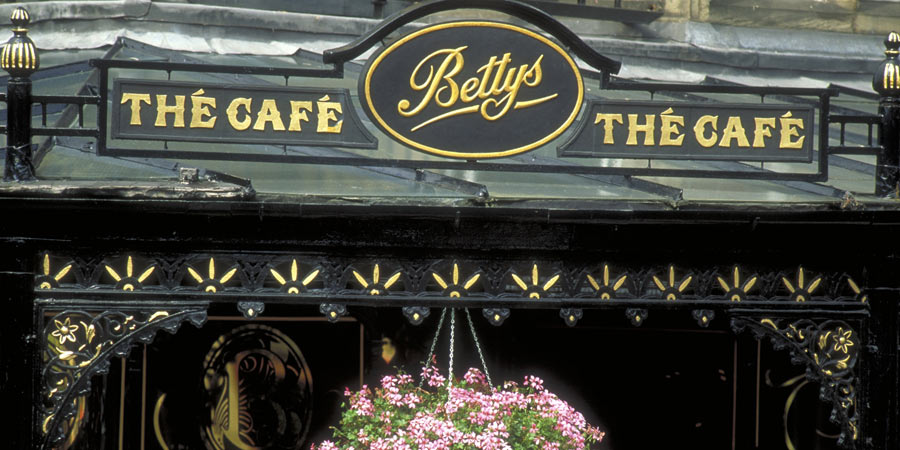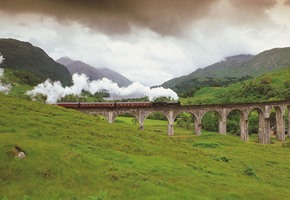It seems a shame sometimes to jet off half way across the world when we haven't seen everything, or even close to everything, on offer right here in the Great British Isles. So we thought we'd put together this little guide which will introduce you to some hopefully new experiences scattered across the four corners of the UK. We've even paired them with certain Rail Discoveries holidays so that if you have some free time, you'll know exactly where to go!
Step back in time in Harrogate - Yorkshire by Steam
There are two spots in the northern spa town of Harrogate capable of making you feel as if you've just been transported back 100 years in time. The first is Bettys, an absolute institution of a tea house. With only a few sites dotted around North Yorkshire, many of you based further south will never have heard of Bettys, in which case you have our sympathies! Kitted out to reflect its Edwardian origins, every aspect has been perfected to a T(ea), from the white aproned waitresses, to the polished silver of the pastry trolley and the starched corners of each tablecloth. And not only does it look the part, it tastes it too with a wide range of traditional Yorkshire dishes, sandwiches and cakes to choose from. Then after an indulgent lunch, why not head down the road to Harrogate's Moorish inspired Turkish bathhouse? This is one of only seven, and boasts the title of most complete, fully-functioning public baths still in use from the 19th century, and its arabesque painted ceilings, terrazzo floors and Moroccan lights make it truly one of a kind.
Enjoy the local tipple - Norwich & Norfolk
Bordeaux, Tuscany, Napa Valley, Norfolk.…just a 20-minute drive (or a 40-minute bus ride) away from the centre of Norwich, in the heart of the Norfolk countryside, you'll find Winbirri - a family-run vineyard and winery set over 25 acres that is at the forefront of English wine-making. They've even been named as the makers of the best white wine in the world and yet we bet few of you (even the wine aficionados) have heard of them! Book in for an afternoon tour and tasting where you'll follow the grapes' journey from vine to glass, and get the chance to taste one or two different varieties along the way. You can also visit the winery's shop so your friends and family can find out exactly what they've been missing, that's if you're feeling generous enough to share of course.
Go digging for history - Railways of Wales
The sleepy seaside town of Llandudno hasn't always been so tranquil, once the air would have rung out with the clamour and chimes of a busy copper-mining community. But until 1987 no one was even aware of the existence of the area's 4,000 year-old, bronze age activity. It was in this year that one of Britain's most important archaeological sites was uncovered, revealing activity that, at the time, was much more advanced that any academics had supposed. 2,000 years before the arrival of the Romans, prehistoric man was mining for copper in order to advance their tool-making skills and therefore increase their chances of survival in such a dog eat dog world. This really is evolution in action. Today you can take a tour of the fascinating underground caverns, imagining all the while what these working conditions might have been like in a time before modern technology.
Experience the extinct - West Highlands & Skye
With some free time in the Scottish city of Glasgow, step off the tourist track and head to Victoria Park where there lies an underground museum that holds a secret not many have been lucky enough to hear about. This is Fossil Grove, a spooky copse of eleven atmospherically lit tree stumps that, despite what your eyes may tell you, aren't actually there. In 1897, workmen building a quarry on the outskirts of the city stumbled across these decapitated specimens and knew there was something a bit different about them. After calling in the experts, they were eventually identified as quillworts (a variety of fern), a plant that died out around 325 million years ago. It turns out that in the intervening millennia, conditions were just right (an astronomically small possibility) and these examples were perfectly preserved and then fossilised as life went on unawares above them.






